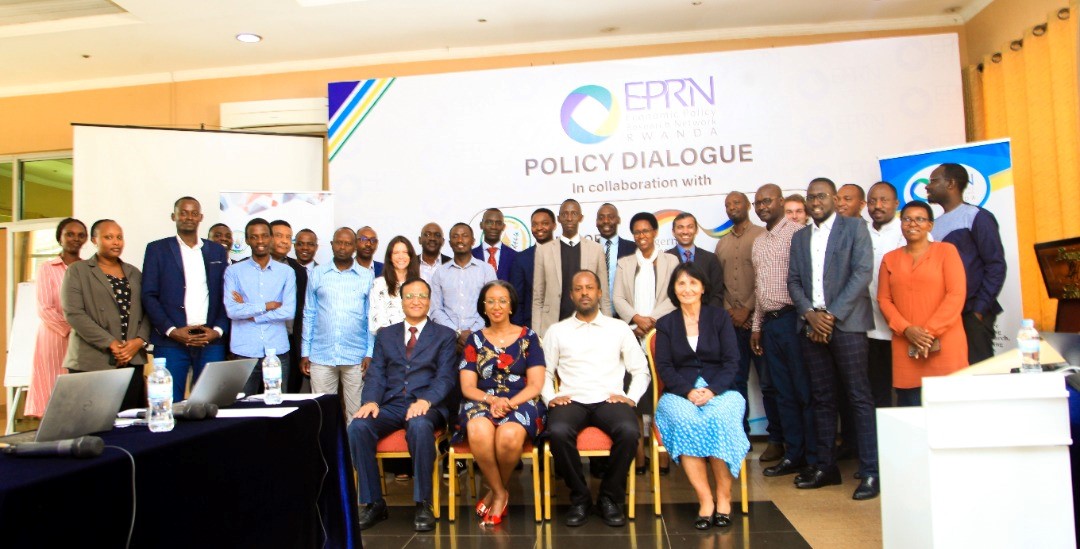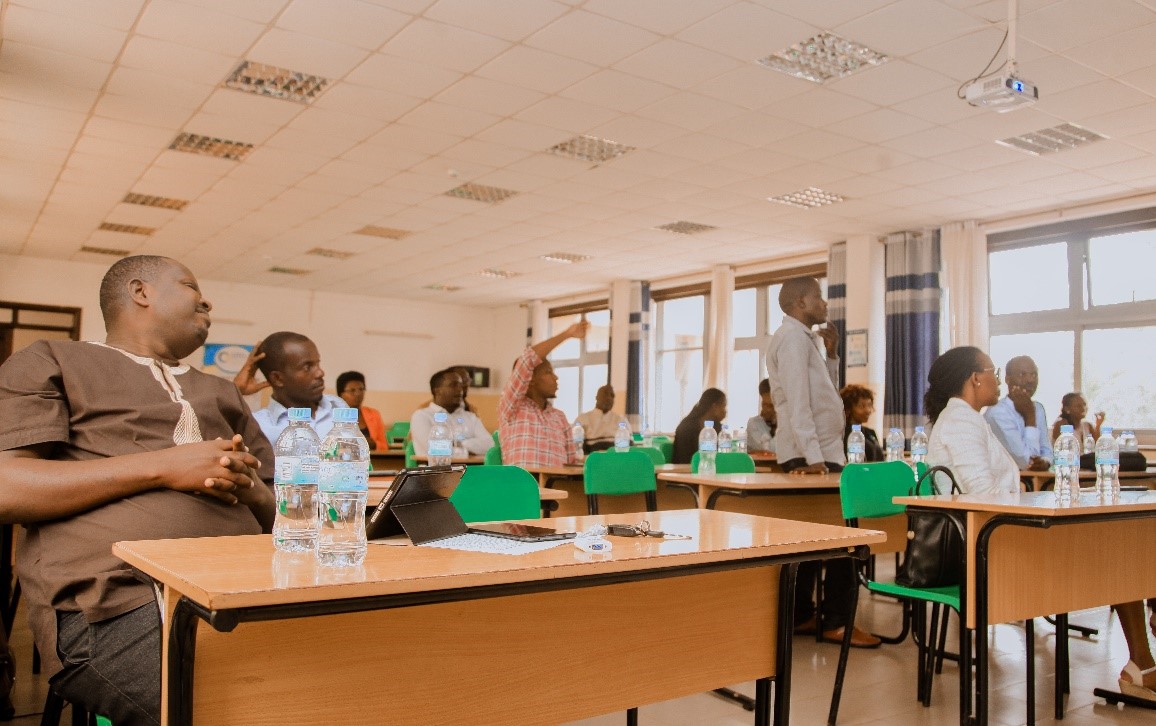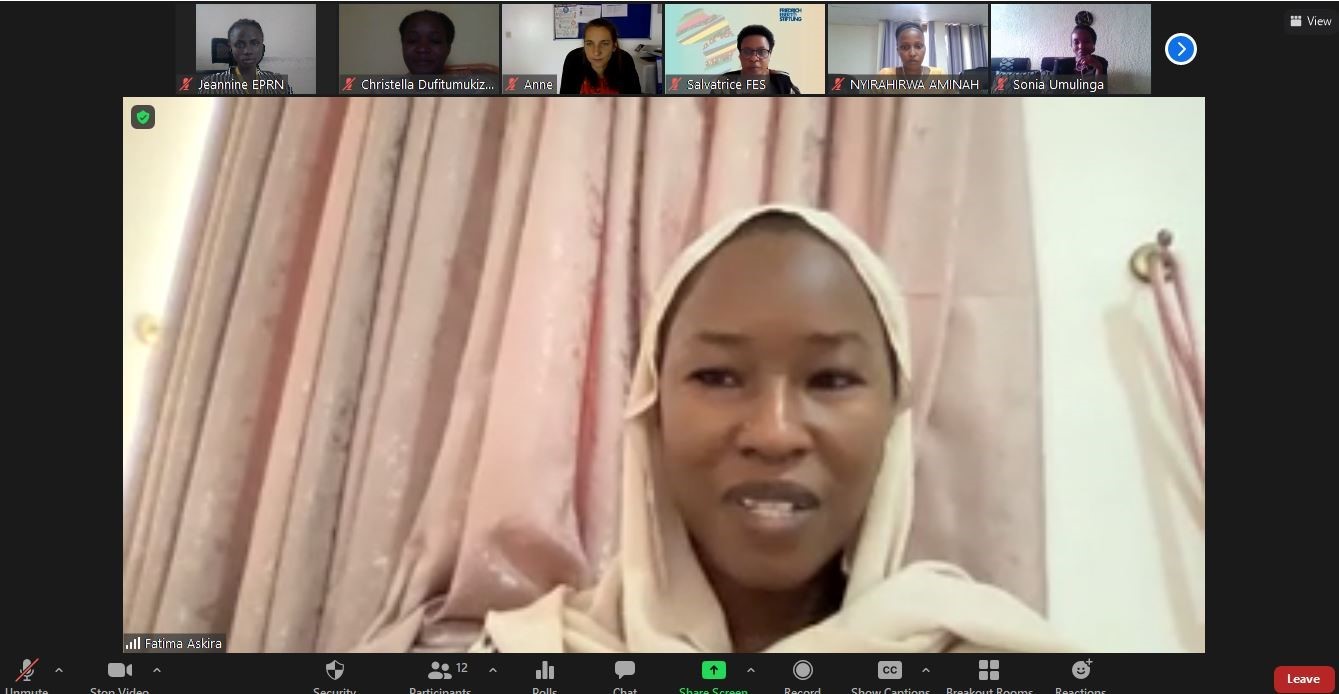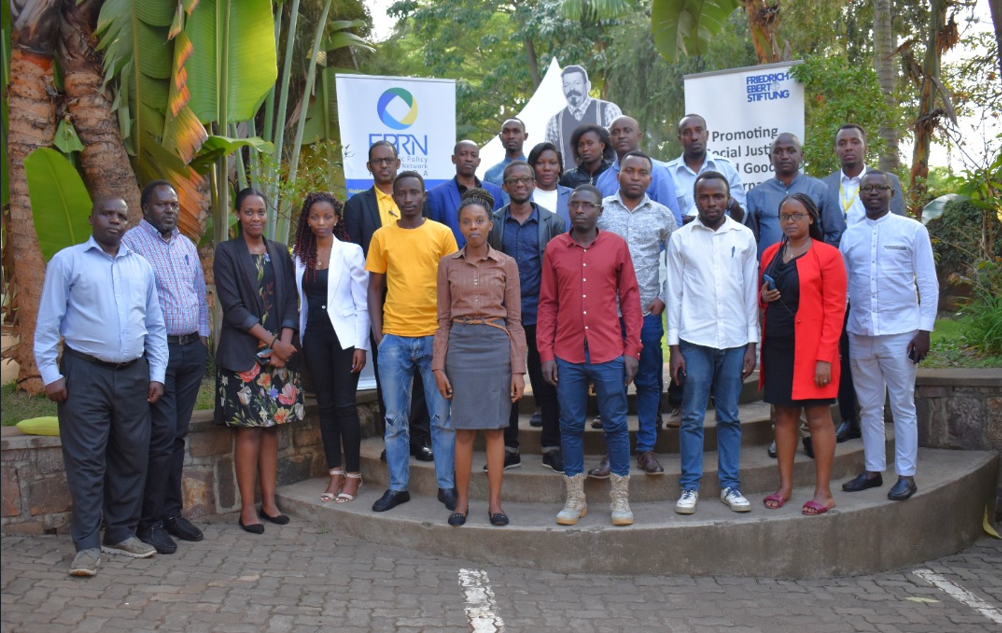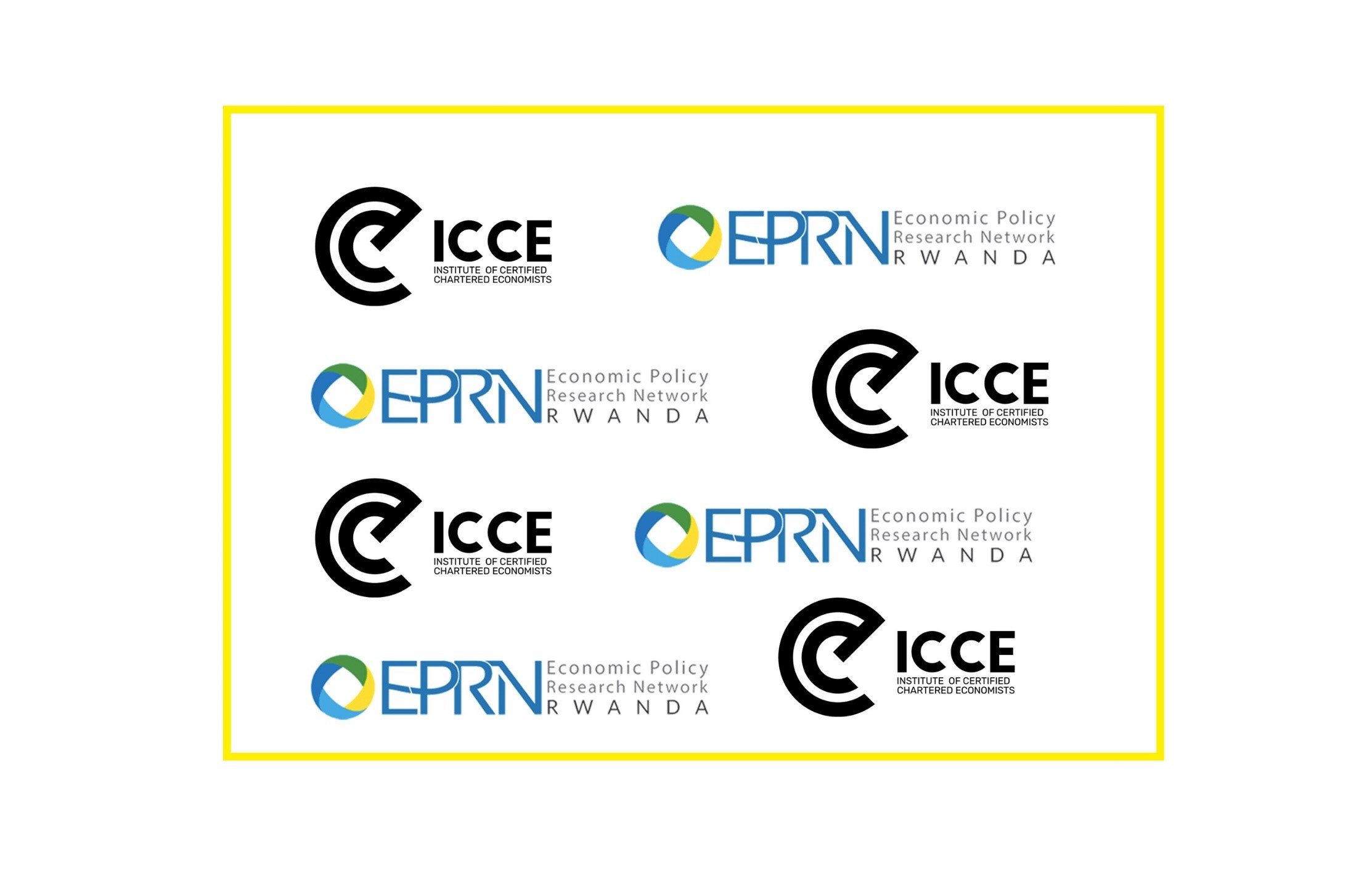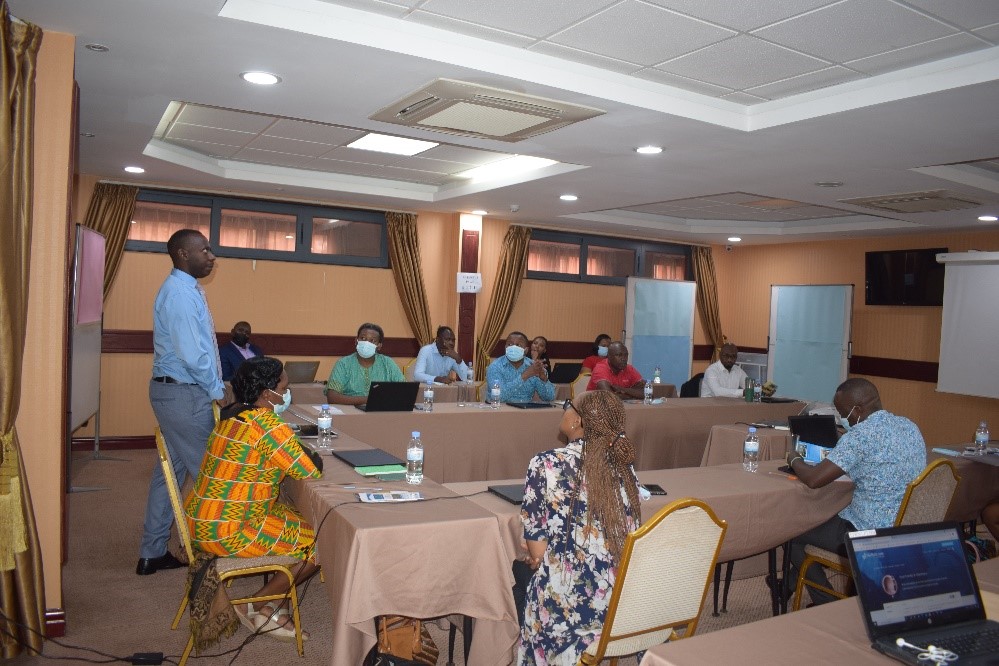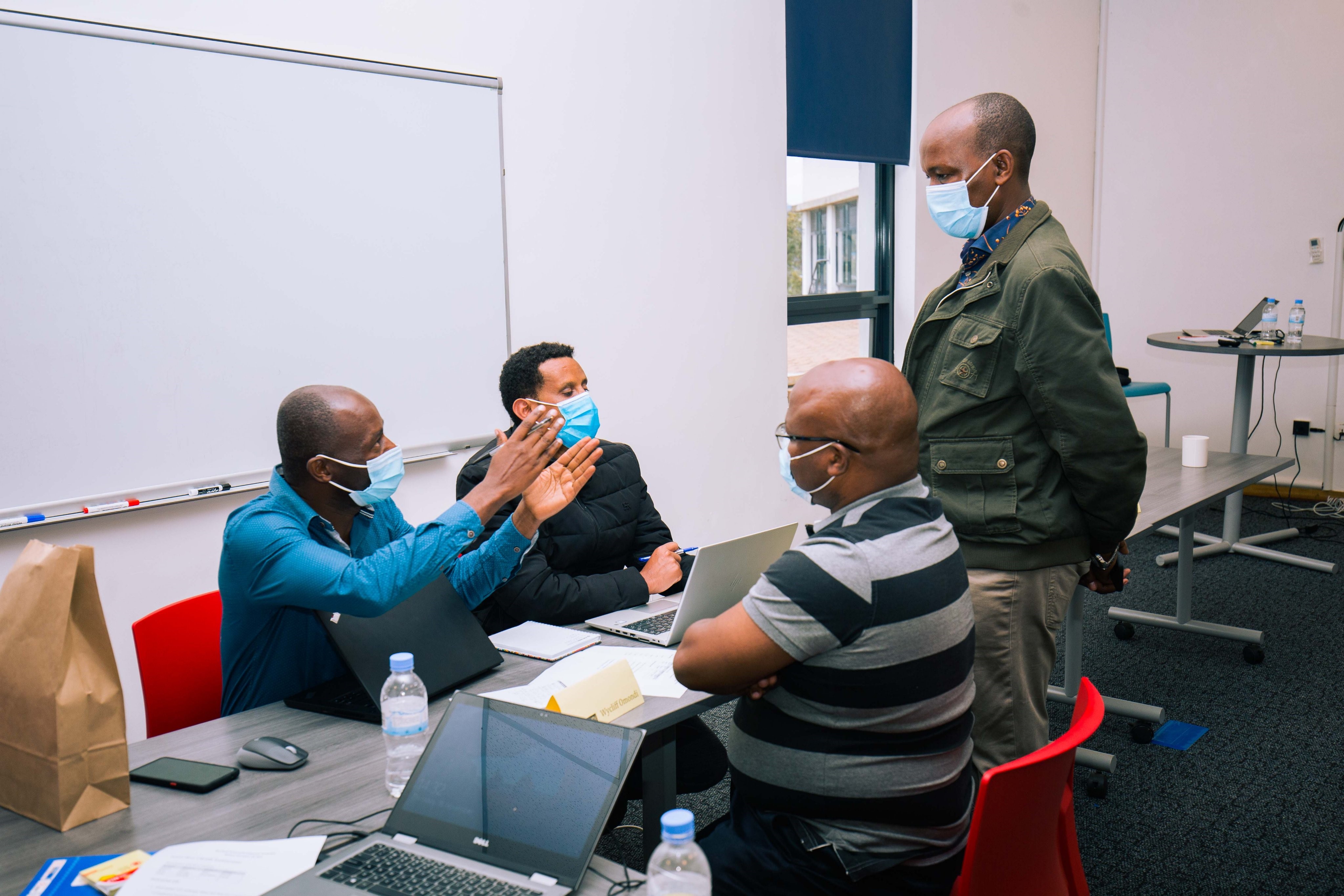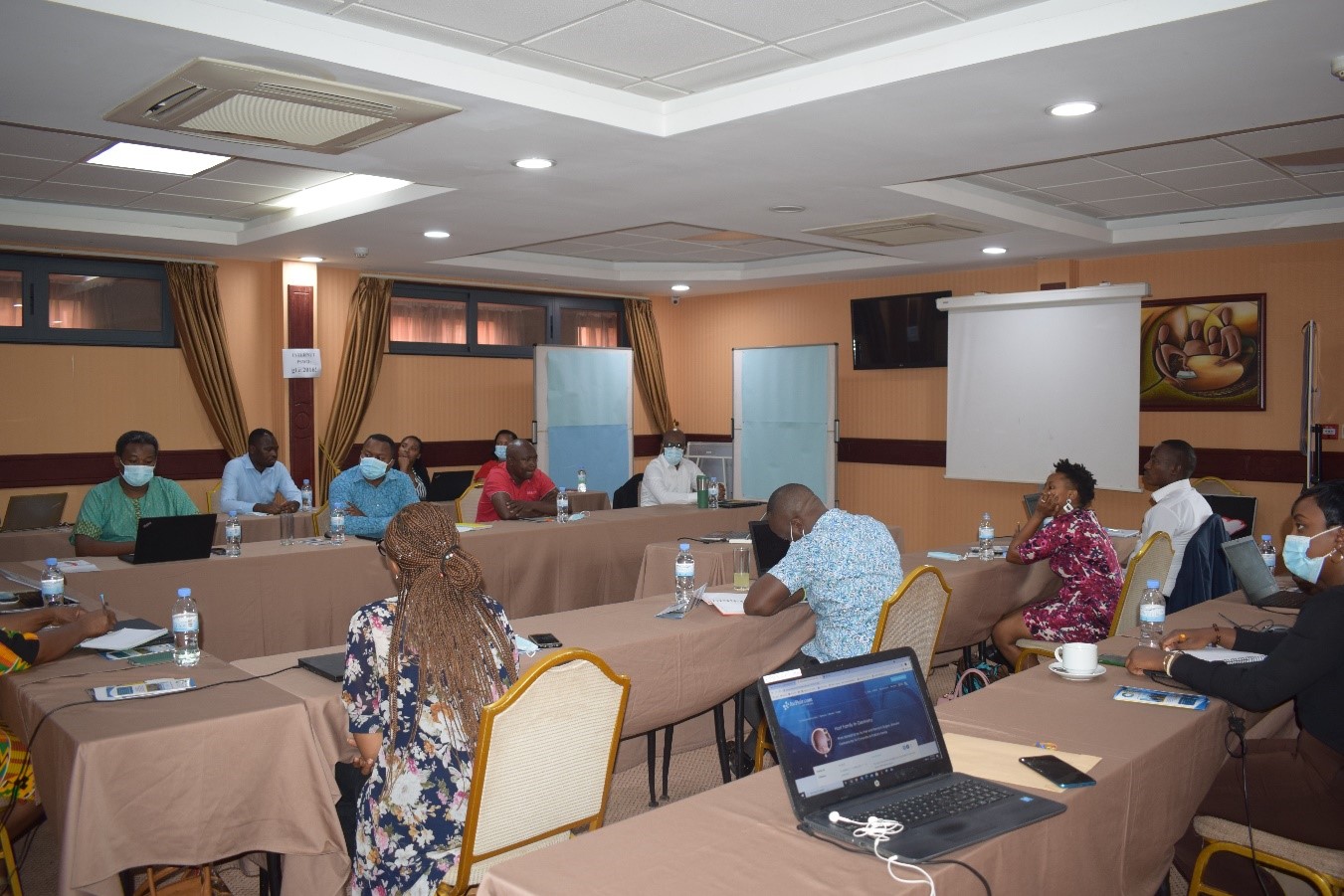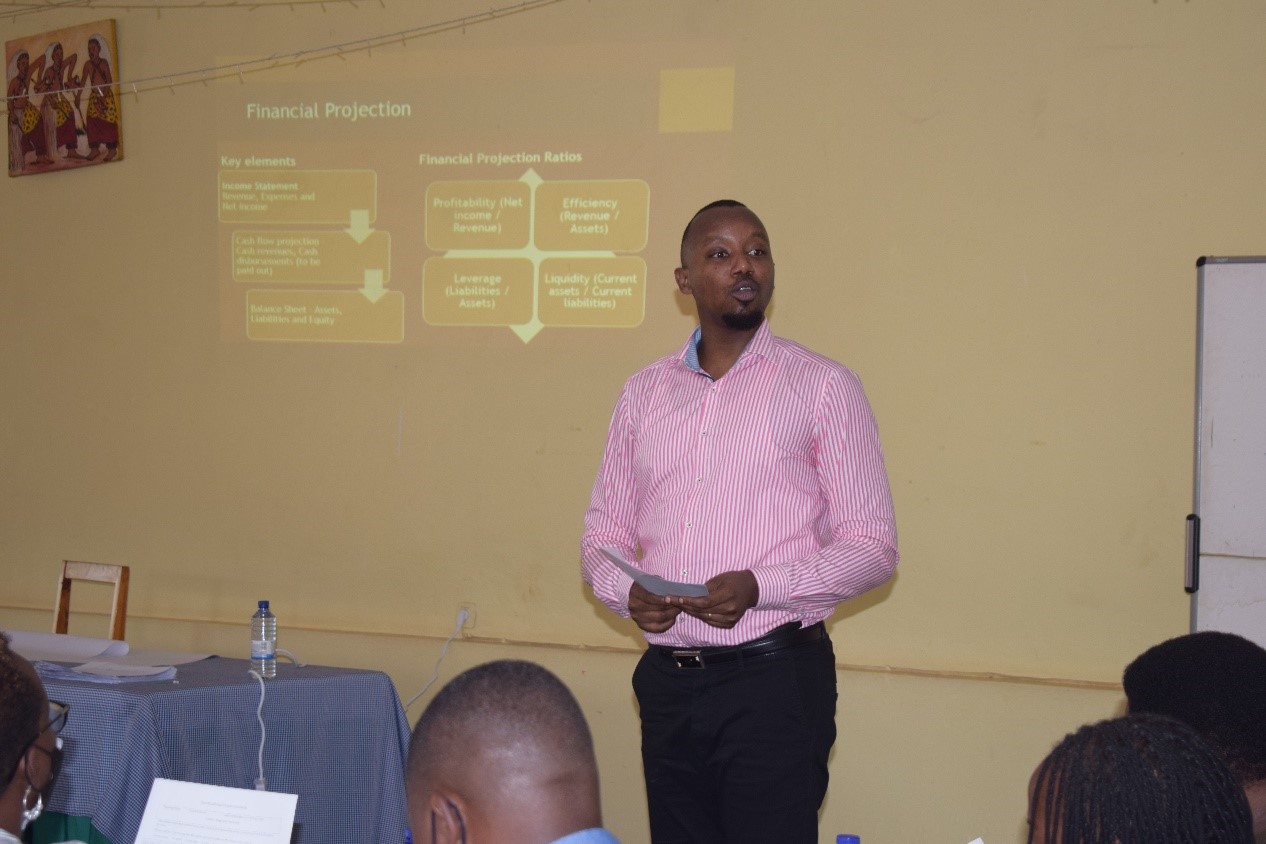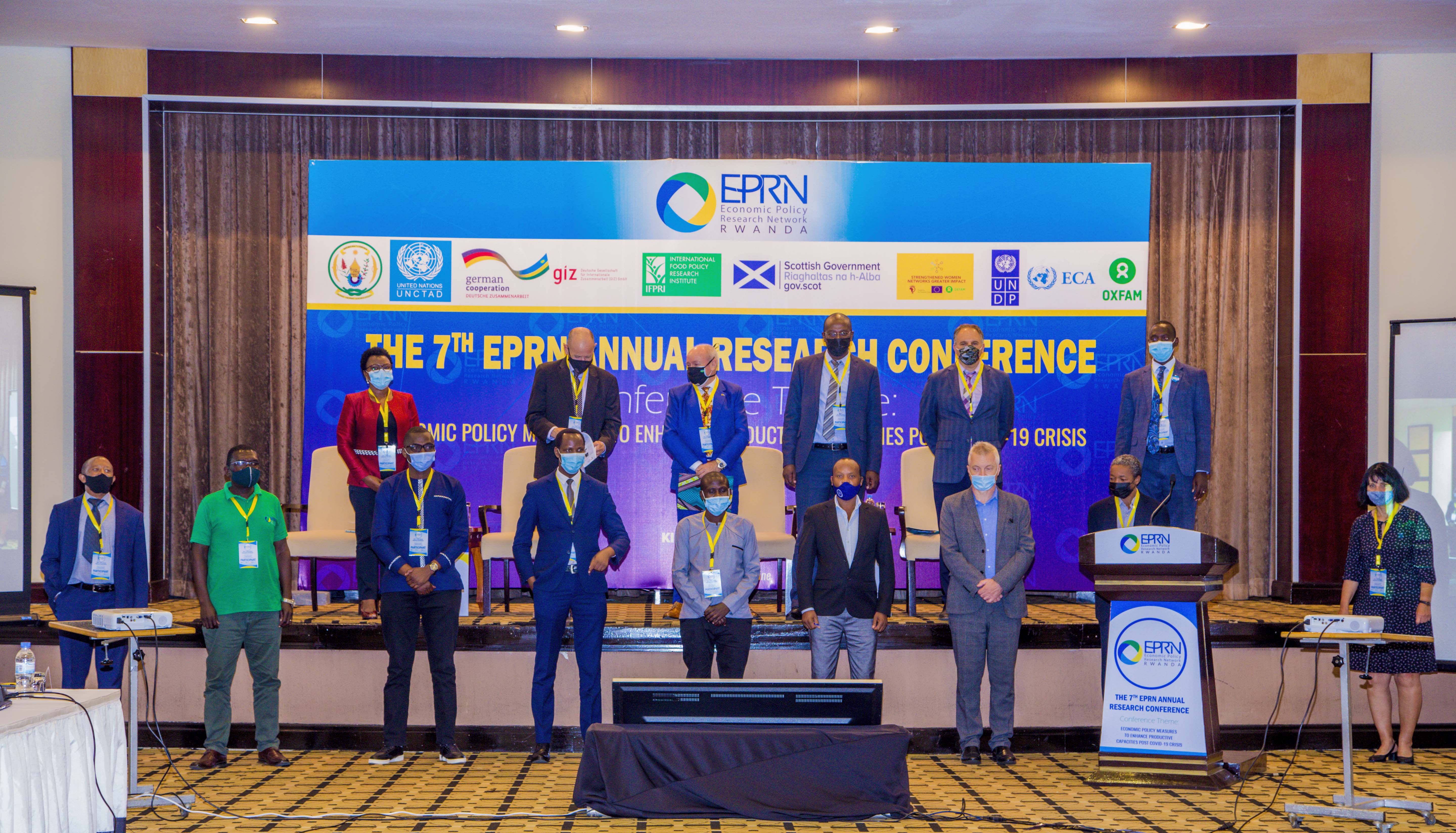6TH EPRN ANNUAL ECONOMIC RESEARCH CONFERENCE
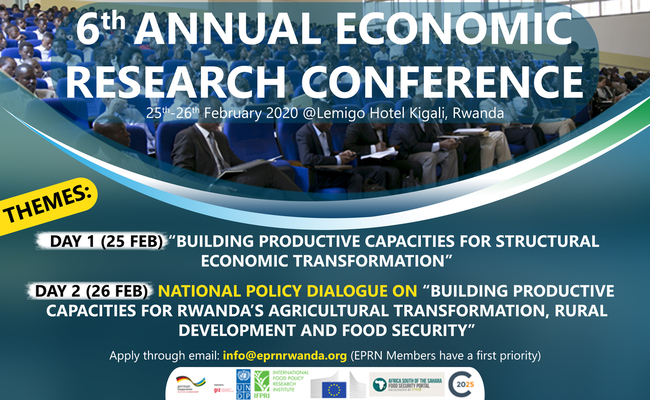
25th-26th February 2020 @Lemigo Hotel Kigali, Rwanda
Jointly organized by : EPRN,GIZ, IFPRI, MINAGRI and Compact 2025
Day 1 : 25/02/2020
Theme : “Building Productive Capacities for Structural Economic Transformation”
1. Introduction
The Economic Policy Research Network (EPRN Rwanda) is a Non-Governmental Organization aiming at strengthening the capacities of individuals and organizations active in or with an interest in economic policy research and analysis. EPRN Rwanda therefore responds to economic policy gaps resulting mainly from lack of quality and informative research and the challenge of human capacity in terms of limited numbers of economic researchers and active involvement.
The mission of EPRN Rwanda is to contribute to the evidence based economic policy making by providing high quality research, building capacity and creating networking opportunities.
The Economic Policy Research Network is organizing the 6th Annual Economic Research Conference that brings together researchers and policy makers to disseminate research findings from its scholars and those from other research and academic institutions. The Conference is scheduled for February 25, 2020 in Kigali and targets national and international researchers, academics, professionals and decision makers working in government, private sector enterprises and institutions, civil society organizations and development partners.
This year’s main theme is “Building Productive Capacities for Structural Economic Transformation”, which will be broken down into six sub-themes :
- Enhancing productivity and competitiveness (incl. value chain linkages)
- Improving access to markets (EAC, AfCFTA, other regional integration initiatives)
- Promoting Made in Rwanda (domestic and external market capturing strategies)
- Strengthening human capital for Structural Economic Transformation
- Improving Business Environment for Structural Economic Transformation
2. Purpose of the Conference
The 6th Economic Research Conference seeks to provide a research platform and exchange forum for economic researchers from a wide spectrum such as academics, government officials, representatives of development partners, CSOs around the topic of “Building Productive Capacities for Structural Economic Transformation”. This is also an opportunity to brainstorm on our Country status in regards to the topic of productive capacities and suggest innovative policy solutions to achieve desired goals and targets.
3. Expected Outcomes of the conference
In addition to research papers and reports, the expected outcomes of the conference are the policy briefs summarizing key findings and recommendations.
The final papers with key policy recommendations will be published online through EPRN website : www.eprnrwanda.org, through websites of partners and through the EPRN Paper Series Vol 3. Policy recommendations will also be developed and disseminated to stakeholders (mainly policy making institutions) for information and action.
4. Presentations
During the conference, research papers done by EPRN researchers and study reports of UNCTAD, UNECA, UNDP and TMEA around the topic will be presented and discussed.
Day 2 : 26/02/2020
Theme : “Building Productive Capacities for Rwanda’s Agricultural Transformation, Rural Development, and Food Security”
1. Aims and objectives
This national policy dialogue on “Building Productive Capacities for Rwanda’s Agricultural Transformation, Rural Development, and Food Security” brings together the policy and research communities of Rwanda to encourage the continuous and open exchange of ideas, data, and evidence for the transformation of Rwanda’s agriculture sector and rural economy. The objective of this dialogue is to strengthen the links between policy decision-makers and the research community, and ultimately, to improve nutrition, food security, and food systems resilience.
To achieve this objective, the dialogue will identify (1) knowledge gaps that have yet to be addressed in support of the Fourth Strategic Plan for Agricultural Transformation 2018-24 (PSTA IV), (2) data, methods, and tools needed for timely and relevant policy analysis to support evidence-based policymaking, and (3) communications and outreach strategies needed to build a stronger and deeper interface between the policy and research communities, ultimately contributing to (4) durable partnerships and strategic collaborations on policy research, analysis, and communications in Rwanda. This combination of evidence generation, communications, and partnership are critical to advancing agricultural transformation, rural development, and food security in Rwanda.
This national policy dialogue is jointly organized by the Ministry of Agriculture and Animal Resources (MINAGRI), the Economic Policy Network of Rwanda (EPRN), the International Food Policy Research Institute (IFPRI), and Compact 2025. This dialogue is part of a series of country policy dialogues facilitated by the Food Security Portal, with support from the European Union.
2. Background
Rwanda has made remarkable progress in the past two decades, highlighted by rapid economic growth and sharp reductions in poverty. During this period, the country has emerged as a leader among sub-Saharan African countries in promoting innovation, gender equality, and an enabling business environment. The government remains strongly committed to ambitious development goals, efficiency and transparency in implementation, strong collaboration with the private sector, and diplomacy through regional and global partnerships. As a result, Rwanda’s economy has enjoyed unprecedented growth of 7.8 percent per year between 1997 and 2017, and an overall decrease in the poverty rate from 60.4 percent in 2000 to 38.2 percent in 2016/17.
These encouraging trends present a unique opportunity for Rwanda to accelerate its agenda for sustainable development and inclusive growth by placing greater emphasis on agricultural transformation and rural development. There is a demographic dividend to be harnessed from the large population of rural youth if employment, education, and skills development opportunities can be expanded. There are productivity gains to be seized if efforts continue to be mobilized in support of sustainable intensification and the modernization of agriculture. There are new opportunities to diversify the agricultural sector, strengthen the agri-food system, build nonfarm rural enterprises, and offer new exports to the world market with strategic investment in market infrastructure and private sector-led value chain development.
It is in this context that productive capacities are a central theme to transforming Rwanda’s agriculture and its rural economy. Increased productive capacity can accelerate this transformation via several important pathways : through natural capital—the land, soil, water and natural resource base that agriculture depends on ; through labor and human capital, or the effort, know-how, and innovative capabilities of farmers and rural entrepreneurs ; and through markets for credit, inputs, technology, commodities, and value-added products. The PSTA IV highlights the importance of building these productive capacities in Rwanda.
3. The policy dialogue process
The policy dialogue will take place on 26 February 2020 in Kigali, Rwanda as a follow-on to the 6th EPRN Annual Economic Research Conference titled “Building Productive Capacities for Structural Economic Transformation.” IFPRI and EPRN will co-host the full-day event, which will run from 8:30 to 16:00 at the same venue, and by drawing on the same participants.
The policy dialogue event will follow a roundtable format to promote and facilitate active discussions among all stakeholders. The program includes an introduction to the event’s central theme—productive capacities for agricultural transformation, rural development, and food security in Rwanda—followed by a high-level panel presentation and a series of panel presentations and moderated discussions. A draft program with proposed sessions and speakers is provided below.
Particular emphasis will be placed on engaging up-and-coming members of the policy and research communities, including mid-level policy analysts from MINAGRI, lecturers from the University of Rwanda, members of the EPRN network, students, and youth. These individuals will play a critical role in Rwanda’s development, and their engagement in policy and research at all levels is important to ensuring the success of their future contribution.
Contacts :
Economic Policy Research Network (EPRN Rwanda)
Mr Seth Kwizera,
EPRN Coordinator
E-mail : info@eprnrwanda.org
Website : www.eprnrwanda.org
Tel1 : 0788305142
Tel1 : 0788357648
P.O Box 7375 KIGALI





